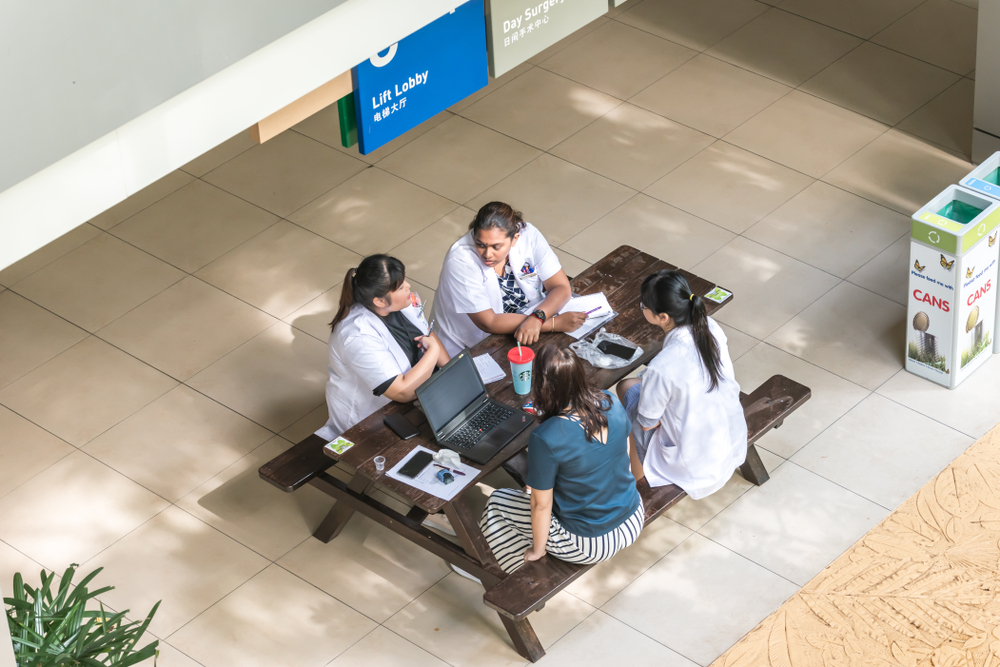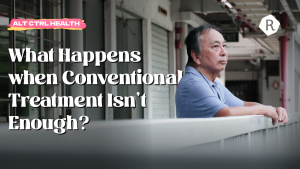Generally, Community Nurses take care of patients who have been discharged from hospitals, but still require rehabilitative support or a continuation of care; a majority of these community patients are the elderly. Thus, nurses in the Community Care sector also provide palliative support to patients during their last stages of life.
We wanted to find out whether the constant interaction with illness and mortality—especially during a pandemic that is disproportionately fatal to the elderly—has changed Nishantini’s and Chin Poh’s perspectives on life.
Some of their responses have been lightly edited for length and clarity.
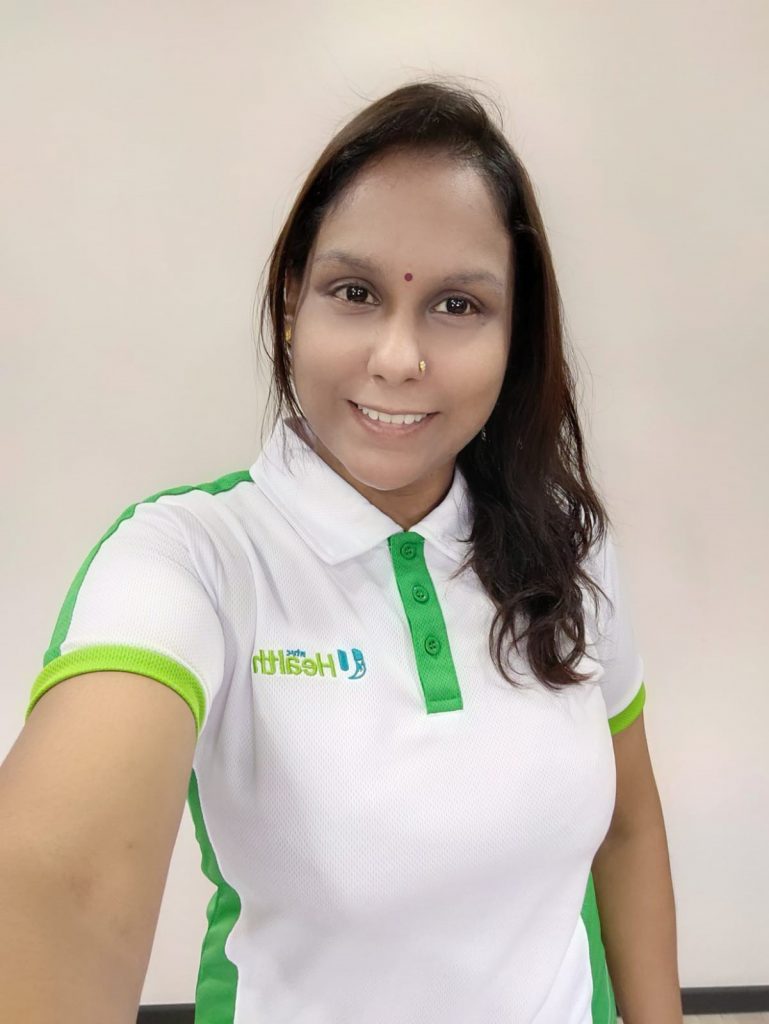
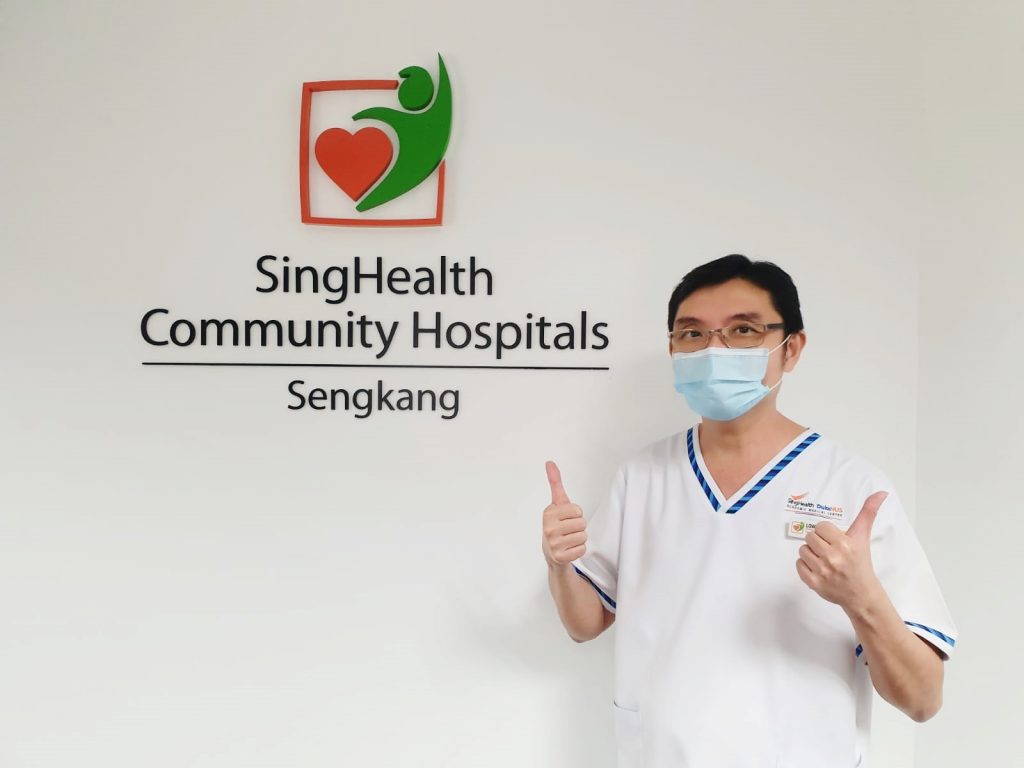
Nishantini’s typical work day involves performing necessary daily procedures for her clients, such as wound management, changing of the urinary catheter, reviewing the Seniors’ Mobility and Enabling Fund to make sure they can afford their medical fees, and so on. Aside from these medical procedures, she stresses that emotional care is an important component of nursing as well: she makes sure to “chat with clients to see how they are doing and ask them about their day”.
Chin Poh is 50 this year. Prior to taking on a nursing role, Chin Poh was an Assistant Engineer. Before the pandemic hit, he was a palliative care nurse at Bright Vision Hospital (BVH), where he cared for patients who suffer from terminal illnesses. (He is currently stationed at Sengkang Community Hospital’s rehabilitation ward.)
Echoing Nishantini’s emphasis that caring for patients involves more than medical attention, Chin Poh explains that his duties as a palliative nurse included giving patients “physical, emotional, and psycho-social support”, and even to family members of the patients, in cases of bereavement. As Chin Poh says, “It can be heartbreaking after the demise of a loved one.The team tries to relieve some of the emotional burden felt by the family and close friends in any way we can.”
Nishantini: My mum, who is a health attendant, has always told me stories of how she helped people around her, especially the elderly. Under her influence, I grew to love helping others too. Hence, I decided that I want to be a nurse. In a way, I am fulfilling my mum’s dream on her behalf as she always wanted to be a nurse.
I wanted to be a home care community nurse because I hope that the elderly can receive the best nursing care in their own homes. Having been in this field for 9 years, I have heard many seniors saying that they would want to spend their last moments in their homes with their loved ones around.
Chin Poh: I graduated as a Registered Nurse from Nanyang Polytechnic (NYP) after a two-year Professional Conversion Programme in April 2005. I was an Assistant Engineer before this for nine years and decided to join the healthcare sector to follow my desire to make a difference in the lives of others, especially the elderly.
Picking up new skills was not easy for me during my early years in Nursing but I had guidance and constructive feedback from my mentors and colleagues along the way.
How did your family and friends respond when you decided to be a nurse in the Community Care sector? Has their reaction changed since the pandemic?
Nishantini: My family and friends were very glad and supportive of my decision as they knew that it has always been a dream of mine. Being able to work flexible working hours as compared to shift hours is also helpful as I am able to spend more time with my family and child.
They are still as supportive, if not more. In fact, they are proud to know someone in the family who has a part to play in the fight against Covid-19.
Chin Poh: I received great support from my family and friends, especially from my wife and two kids. They are very understanding about my passion to care for others and are very proud of me for being a nurse.
To be honest, apart from the support I received from my colleagues and mentors, my family too played an important role in contributing to my success as a nurse all these years.
During this pandemic, I often receive messages from them encouraging me to persevere and take good care of myself. It is very heartwarming and I will try my best not to let them down.
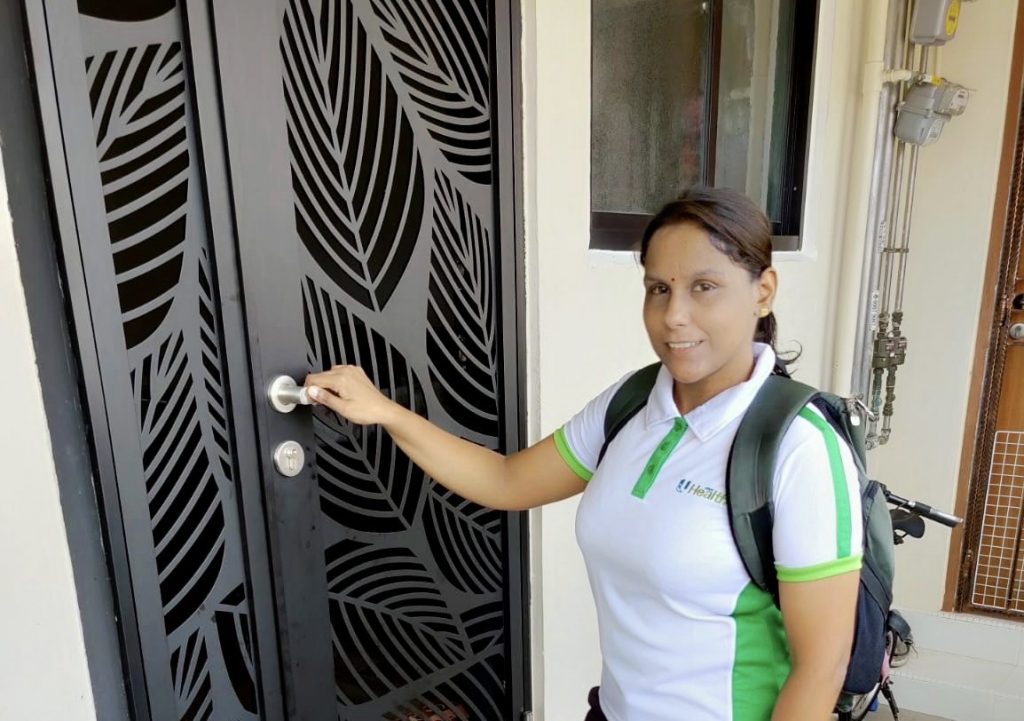
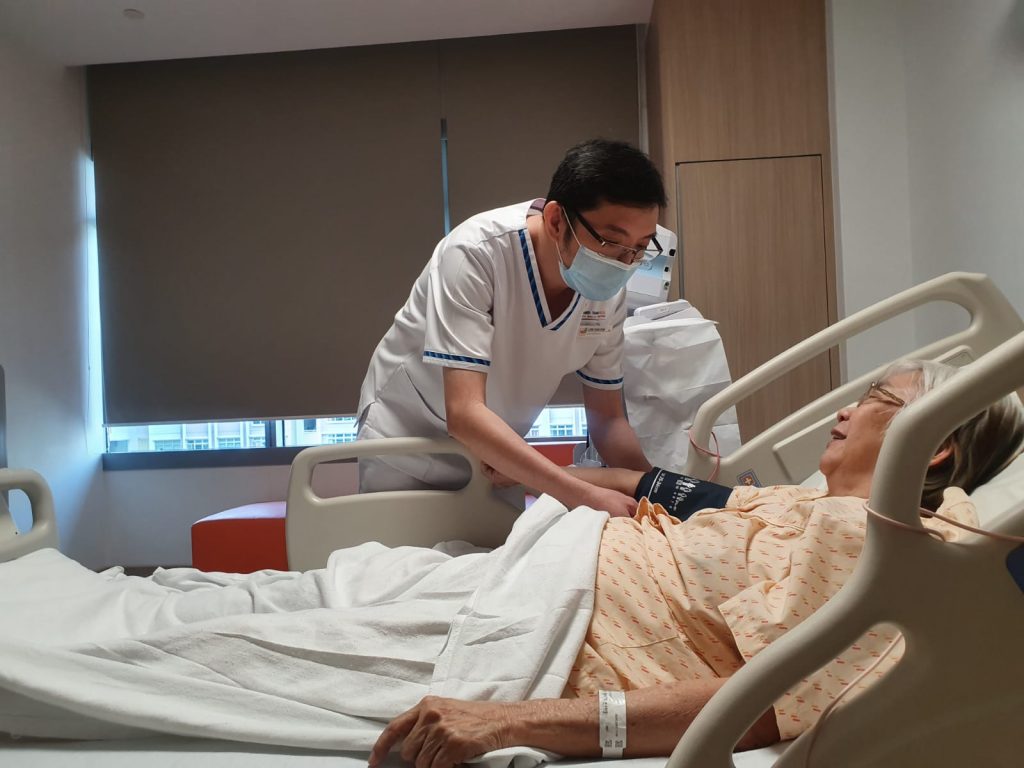
Nishantini: They tend to be more vulnerable, both physically and emotionally. Hence, we have to be cautious with what we say and do. Many a time, the elderly patient has a lot to share and they may even tell us things that they don’t usually speak to their family members about, so we have to be patient and lend them a listening ear.
Chin Poh: Building rapport is very important when it comes to caring for patients with chronic illnesses and of advanced age. I have to earn their trust so that they can open up for me to explore their needs and to assist them in managing their pain during their end of life.
I once cared for a palliative patient who was diagnosed with cancer. Throughout the patient’s stay at BVH, I attended to his needs diligently and provided him thoughtful care so that he could be free from the stressful moments of his disease.
I felt a sense of gratification to be able to care for the patient during his final days and was touched when he wanted to speak to me and thank me for what I’ve done for him, before he passed on.
Has being a nurse in the Community Care sector changed your perspective on life?
Nishantini: Yes, indeed. Being in this field, I have learnt to treasure the smallest things in life such as the time spent with family and friends. I check in on them every now and then, and try to be there for them whenever they require my advice and help. In fact, my relationships and bonds with them have become stronger.
Chin Poh: It can be life-changing to know that we can have health problems and that it could make our loved ones worry. Most patients do not want to be a burden to their families.
My experiences in the palliative care sector have taught me to keep healthy—this includes maintaining a healthy diet, to exercise often to keep fit, be less stressed, and appreciate my time with my loved ones more. I am also more compassionate to those in need, especially the elderly.
What is the most valuable thing you have learnt from a patient?
Nishantini: I have a client who is 96-year-old but she still tries to be as independent as possible by doing things on her own.
During my first visit, I learnt that she has been cleaning and changing her own stomach pouch, which can be quite a challenging task. When I asked her why she didn’t want someone to help her with it, she said that she could still manage and would like to do it for herself. Even when she has a ganglion on her foot, she still prefers to move around by herself with the help of a walking frame, instead of relying on a wheelchair.
Her determination is commendable and this made me realise that age is really just a number. While some seniors may require some support, they still value their independence and would like to do things for themselves.
Chin Poh: I have the opportunity to nurse my patients with my heart and treat them as my own parents. This is very fulfilling to me.
I now appreciate my time with my loved ones more and value the meaning of a healthy life.
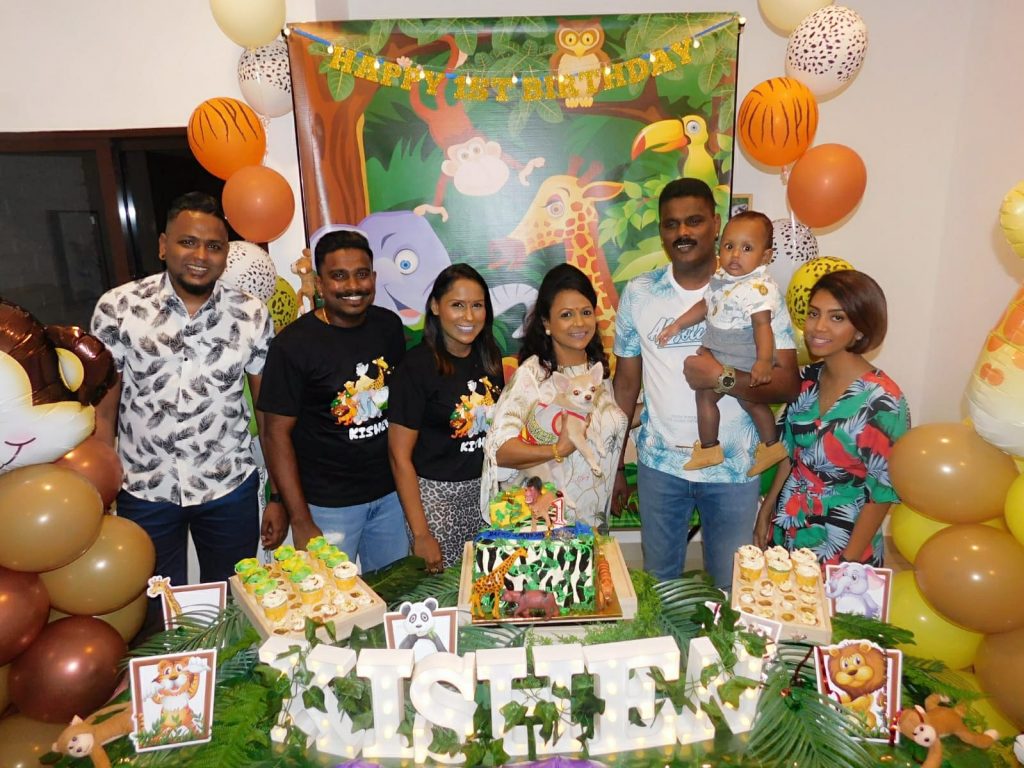
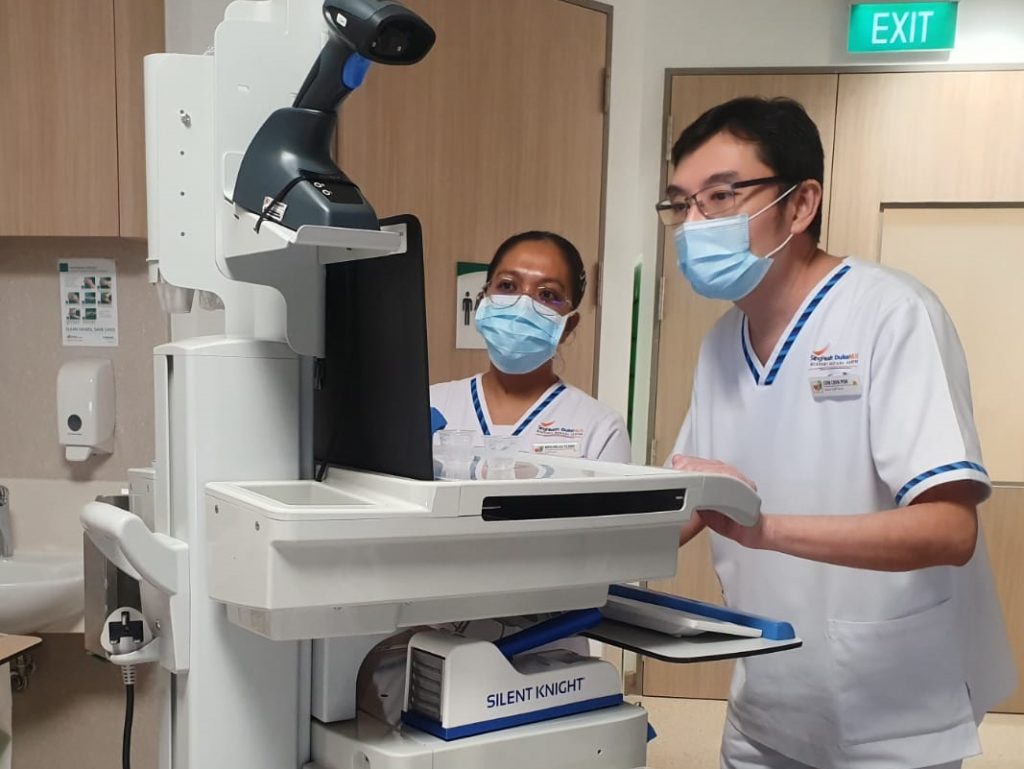
Nishantini: Most people may not know much about community nursing and what we do. Efforts like this where our work and experiences are being mentioned serve as a form of appreciation to us.
Chin Poh: A simple thank you and a smile will make our day. Being a nurse is not an easy feat. But it is a fulfilling job, especially when we see our patients recover and return to their loved ones.
My experience as a nurse has taught me that every effort, no matter how big or small it is, a nurse is making a difference in someone’s life.
It also won’t hurt to encourage more people to take up nursing as a career. 😊
Do you see yourself staying in this line in the long run? Why?
Nishantini: Yes. I love what I do. This is where my passion lies and there is no better way to give back to society than being a community nurse.
Caring for the elderly has taught me valuable lessons which I will remember for the rest of my life. I would never want any elderly person to be neglected. At the end of day, everyone has wishes as to how they would like to be cared for towards the end of their lives.
Chin Poh: I love my job and find it meaningful to be able to care for others.
Being a nurse for 15 years at BVH has allowed me to grow professionally and develop other soft skills, especially in people management. The healthcare sector has offered me many opportunities to grow, learn and develop in my career.

